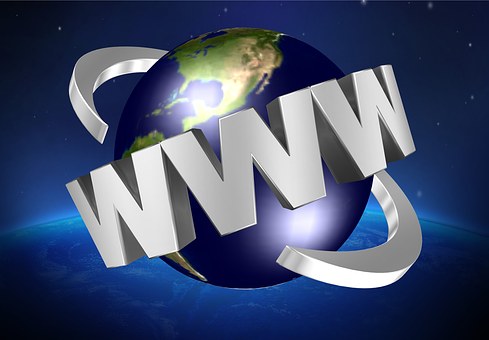Is the Internet a Blessing to Mankind?
Preamble:
Mankind has always been innovative. From the earliest time, he has always fashioned out implements to make life more enjoyable for himself. Thus, in the historical trajectory of human development, we cannot but notice how each epoch of human existence has managed to develop on the technical cum scientific achievement of the preceding epoch. As such, from the invention of simple farm tools to till the soil, mankind has advanced to the establishment of the internet.
This development has made the transfer of ideas, culture and experience from one part of the world to the other seamless. It has helped to bridge a certain gap in information gathering and dissemination. Yet, there is still the looming question about the value of the internet to mankind. Can the internet truly be considered a blessing to mankind, bearing in mind the many ills that are associated with it?
In order to fashion out an informed response to this pertinent question which forms the crux of this treatise, we shall first describe the advent of the internet as a way of showing its historical evolution. Then, we shall carefully consider both the contribution of the internet to mankind and the grouse against it. Surely, this will guide us to affirm the value of the internet to mankind.

1. Historical Background:
The internet is a worldwide network composed of thousands of smaller regional networks scattered throughout the globe. In simple terms, internet is the means by which a computer is connected to any other computer anywhere in the world through dedicated routers and servers. The internet, also known as the Net, is the world’s largest computer network. It is a network of networks which allows for the exchange of information.
A common set of communication protocols enables every computer connected to the internet to interchange information with every other computer so connected. There are an estimated 800 million internet users around the world. Over the last 25 years, the internet has grown to include government and educational institutions and more recently, commercial organisations.
The initial experimental work that led to the invention of the internet which began in 1969 and coordinated by the Advanced Research Projects Administration (ARPANET) with funds from the Department of Defense (DOD) was intended to aid collaboration in military research between business and government laboratories.
The first breakthrough recorded by (ARPANET) was the connection of three computers in California with one in Utah. From around 1980, universities got involved in the research efforts, leading to the setting up of various National Science Foundations designed at increasing capacity in relation to the internet.
The internet has some distinct factors or aspects that led to its historical development. These factors include;
The existence of technological evolution and advancement; most especially research on packet switching and related technologies.
The availability of operations and management aspect of global and complex operational infrastructure.
The social aspect, which resulted in a board community of internets, working together to create and evolve the technology.
The commercialization aspect, resulting in an extremely effective transition of research results into a broadly deployed and available information infrastructure.
The success recorded gave rise to other institutions and universities around the world logging in to the invention which saw it grow in leaps and bounds to what we have today.
Today the internet is a huge collection of different, intercommunicating networks funded by commercial, government and educational organisations. It has developed to handle the larger volume of data, the software has become more powerful and user-friendly, and the types of services available have grown. The internet now links more than 150 countries
2. The contribution of internet to human existence:
There can be no contravening the fact that the invention of the internet has been of tremendous benefit to the existence of mankind.
1. In the first instance, the internet has greatly improved the quality and volume of interpersonal communication amongst mankind.Through the use of the internet, man has been able to bridge the gap caused by distance in her effort to share life experiences.
Families and friends forced to live apart from each other due to the vicissitudes of life can attest to how the internet has helped them to remain in communication in a very personal way.
2. What is more, bearing in mind the cultural dispersion of people of the world, the internet has unquestionably made it possible for a young chap in Africa to share experiences with other people miles away in Asia, Latin America or any other part of the known world.
3. Furthermore, the internet has manifestly contributed to world economies. Young entrepreneurs can easily publicise their goods and services to a multitude of people, even beyond their immediate geographic location at a significantly low cost.
Trade and commerce have undoubtedly increased in leaps and bounds since the advent of the internet, as buyers and sellers leverage the platform which the internet provides.
4. Moreover, in the area of education, the internet has the capacity to increase the materials available to a student. With the internet came the opportunity for interested candidates to take online courses which are both cost and time effective.
5. Finally, the internet has helped make life generally easier by making it possible for people to achieve much progress in all spheres of human endeavour through the channel it creates for information transfer and connectivity of individuals to any part of the world they so desire.

3. Grouse against the Internet:
1. There is hardly anything in life that is created by man that is not open to abuse; the internet is one of them. One of the many debaucheries levied against the internet is that it has corrupted morals, especially in our clime.
2. This standpoint is abetted by the reality of pornography, which has become very accessible, even to juveniles. They assert that the internet has become the hotspot for people seeking to propagate and access all forms of immoralities.
3. Besides, the corruptive inclination of the internet also infects other spheres of the human enterprise such as the educational institution. Students are increasing scouting the interment in search of ready-made materials to present as their original work, thereby impeding the culture of diligent research.
4. Again, the allure of internet surfing has a great prosperity to distract even the most stout hearted. Often, people spend more time on the internet than they initially planned, in that way affecting their overall productivity in other facets of the life.
5. The internet is known to be addictive since there are many goings-on that can hold its user spell bound for long periods of time. All these lead the individual to derail from his focus.
6. More so, though the advent of the internet has helped human beings to carry out some their activities effortlessly such as banking, it has the ripple effect of increasing cyber financial crimes leading to untold hardships for the victims.
7. Many have lost their life savings in one fell swoop to internet scammers, who make use of the internet to wreak havoc.

4. The Internet; Blessing to Mankind?
At this point, we are placed in a similar situation with the French Philosopher, Jean-Jacques Rousseau who contented with the question whether science has corrupted morals.
In his response, averred that the science corrupt human morality. Though he made this submission about three centuries ago, it would seem as though nothing has changed in relation to the effect internet has had on all aspect of human existence
However, from an ethical standpoint, the question that needs to be resolved is what the object of goodness is since we can agree that blessing refers to that which is good. Ethicists would generally concur that “Good is what helps us or at least does not hinder.” In that light, we can adduce goodness to the internet, nay blessing since it has proved to be a source of great help to human existence.
Nonetheless, we still cannot turn a blind eye to the avalanche of evils associated with it. The fact that it could also hinder us calls goodness.
The point I hope is becoming clear in this part of our discourse is that the use of the internet can either be for good or otherwise; it could be a blessing or an expletive, depending largely on its application.
The internet as an invention of mankind is lacking inherent moral status, it is simply immoral. It is its usage by human beings that confers moral status on it. Nevertheless, the positive intention that propelled its invention stands it in good stead to be considered a blessing to mankind.
Conclusion:
We can hardly deny the fact that the internet has both contributed to the development of mankind and undermined him. In all, we can safely conclude that the internet has largely been a blessing to mankind, with respect to its overwhelming input to the progress mankind has made in other to ameliorate his existence since the turn of the century.
The abuse of the internet in whatever form does not detract the value of the internet to mankind; it only points to the perverse nature of mankind, which will always find a way to vent itself even without the advent of the internet.
The internet has been a blessing to mankind, but the effort must be made to curb its abuse.
References:
Bittle C., Man and Morals, Milwaukee, the Bruce Publishing Company, 1953
Levine J.L, et. AI. The Internet for Dummies, 5th Edition,
Chicago, IDG Books Worldwide Inc., 1998 Okoro E,
Principles of Ethics, Owerri, Readon Publishers Ltd., 2005
Rousseau J., Discourse on the Arts and Sciences, London, W. Owen, 1750.








